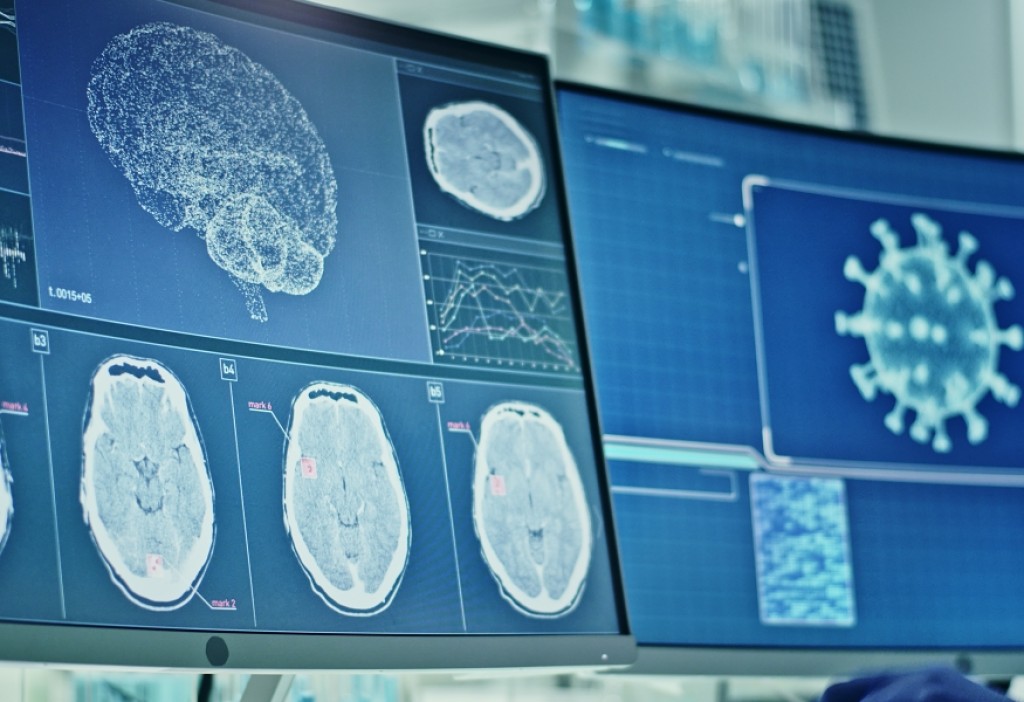
What are the Neurodevelopmental Effects of COVID in Children?
There are hopeful signs the COVID-19 pandemic is gradually getting under control. Of course, it’s still important for all of us to continue to follow guidelines to keep one another safe. Each day, as COVID-19 cases and deaths decline and vaccination rates rise, the prospect of things returning to “normal” seems more and more possible. Finally, it feels like we can begin to look ahead with much greater optimism.
Since the pandemic began one year ago, more than 3 million children in the U.S. have survived this novel coronavirus. What “normal” will look like for these children is a question doctors, scientists and parents are still trying to figure out. In part, time will tell. But, here’s what we know already. Early research indicates children who are generally healthy and who have had mild or moderate cases of COVID-19 are likely to make a full recovery. However, there’s also research that identifies a small subset of children who developed severe neurological diseases associated with the SARS-CoV-2 virus. For many health care providers like myself, this begs the question: What are the potential long-term neurodevelopmental effects for children who have contracted human coronavirus infections that impact the nervous system?
Recently, my colleagues from Texas Children’s Neurology and Developmental Neuroscience department and I published an article in the journal Pediatric Neurology where we explored this subject further. While we are learning more about COVID-19, very little is known about the long-term neurodevelopmental effects of the virus on children. Our experience taking care of kids with similar clinical problems as those seen in patients with COVID-19 (but from other causes) has shown us that sometimes neurologic disease courses or severe illnesses requiring time in the intensive care unit can have lasting, subtle impacts on children, such as learning and attention difficulties, word-finding trouble or residual muscle weakness that appropriate therapies can help address. Struggles with mood, behavior and sleep are also common.
Therefore, in order to help parents and health providers spot these effects, we did a review of the medical literature for studies about the neurodevelopmental outcomes of children who’ve had COVID-19 or the other six coronavirus species known to infect humans. In total, we reviewed more than 2,000 papers and found about 50 which discussed neurologic illness and severe disease from all types of coronaviruses.
Here are a few takeaways we learned:
- Thankfully, severe disease (dyspnea, central cyanosis, hypoxemia) and critical disease (acute respiratory distress syndrome, respiratory failure, shock) from COVID-19 in children is rare – less than 2% and 1% of cases compared with studies showing adult rates of severe and critical disease as high as 14% and 5% respectively. With the exception of Middle Eastern Respiratory Syndrome virus (MERS-CoV), each human coronavirus was associated with neurological disease in young children.
- Children with COVID-19 infections, including infections from viruses other than COVID-19, had mild and serious neurological illnesses including transient paralysis, meningitis, encephalitis and seizures. In addition, children with COVID-19 suffered vascular disease, which included strokes, particularly in children who had multisystem inflammatory syndrome (MIS-C). In total, 2 to 4% of children with COVID-19 required hospitalization and 1% needed intensive care.
- Interestingly, very few articles evaluated the long-term effects of the human coronavirus infections on long-term neurodevelopmental domains including cognitive, language, academic, motor and psychosocial outcomes in children. More research is needed to fill this critical gap in knowledge.
At Texas Children’s, when we see patients with severe illnesses requiring intensive care or patients with nervous system diseases, our team of neurodevelopmental specialists, like neurologists, psychologists and therapists, follow these patients over time to guide their treatment and recovery. In the same way, we advocate for the long-term surveillance of children with neurological manifestations caused by human coronavirus infections to ensure their neurocognitive function is recovering as well as possible. The tremendous stress and trauma of severe illness courses can have chronic consequences to a child’s quality of life. Thus, neurodevelopmental surveillance can play a critical role in reducing these effects.
The goal of our study was to provide guidance on the signs and symptoms that pediatricians and parents alike should look for as children recover from serious bouts of COVID-19, including those involving the nervous system. Parents, teachers, pediatricians, child neurologists and psychologists should work together to spot these signs and connect children with the right therapies to help them recover and thrive.
Click here to read the full article of our study published in Pediatric Neurology. Click here to learn more about our Neurology and Developmental Neurosciences department at Texas Children’s.




